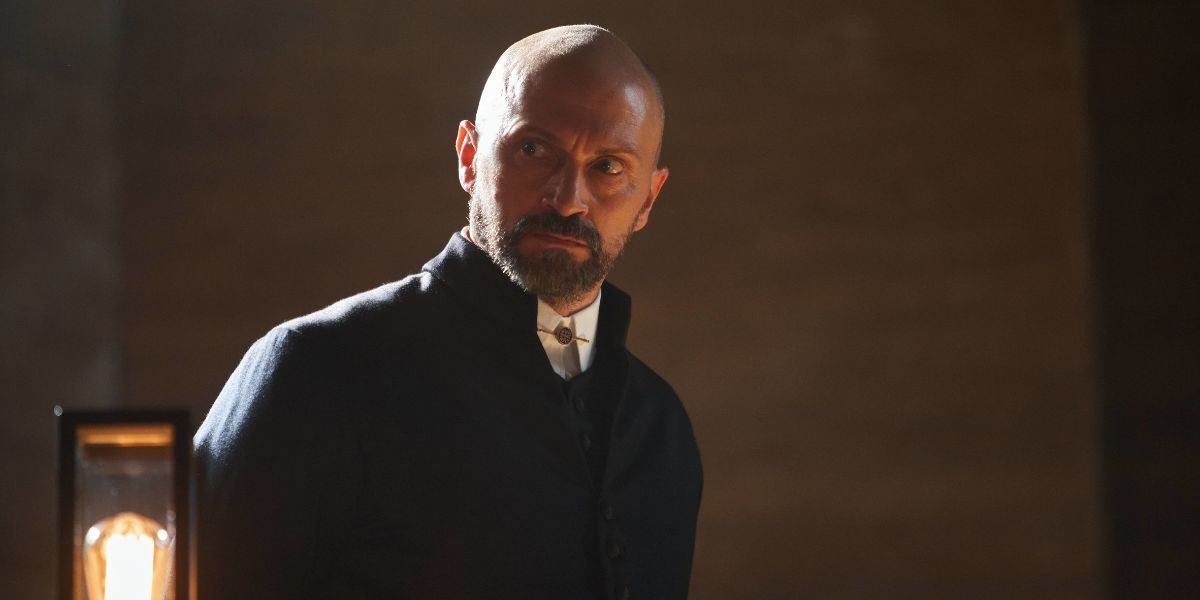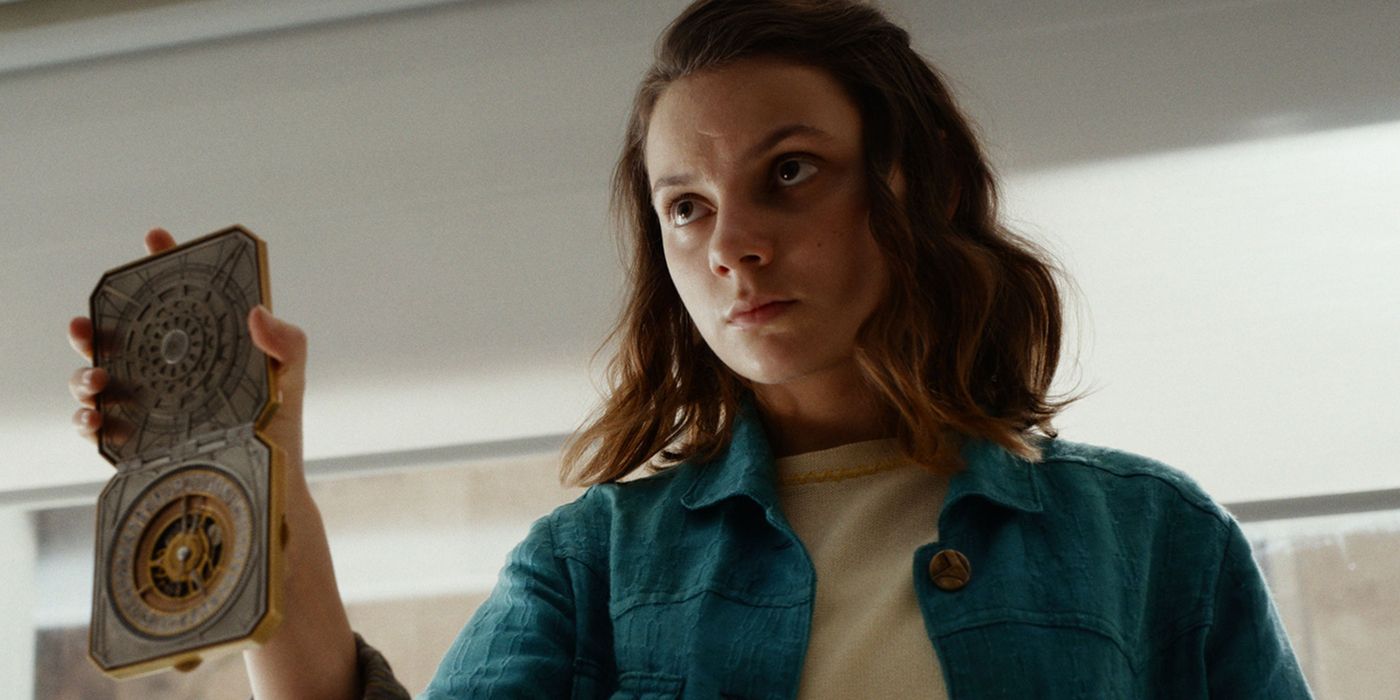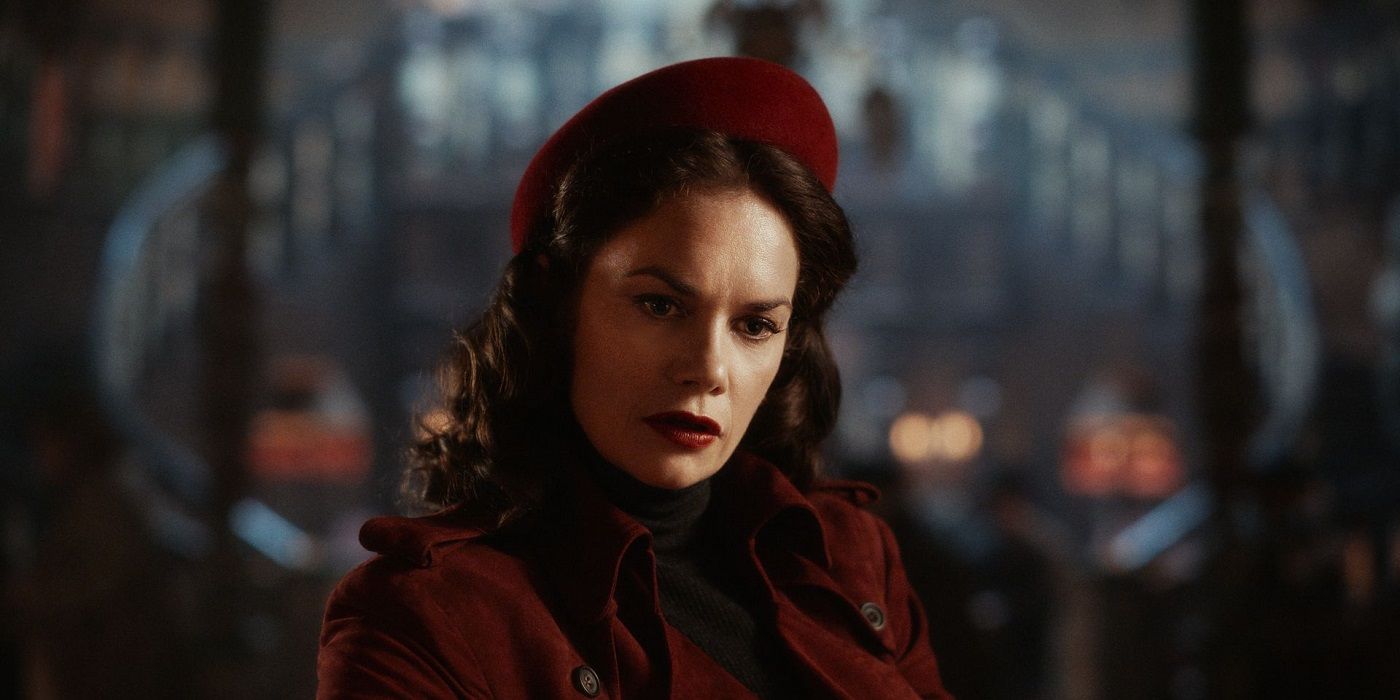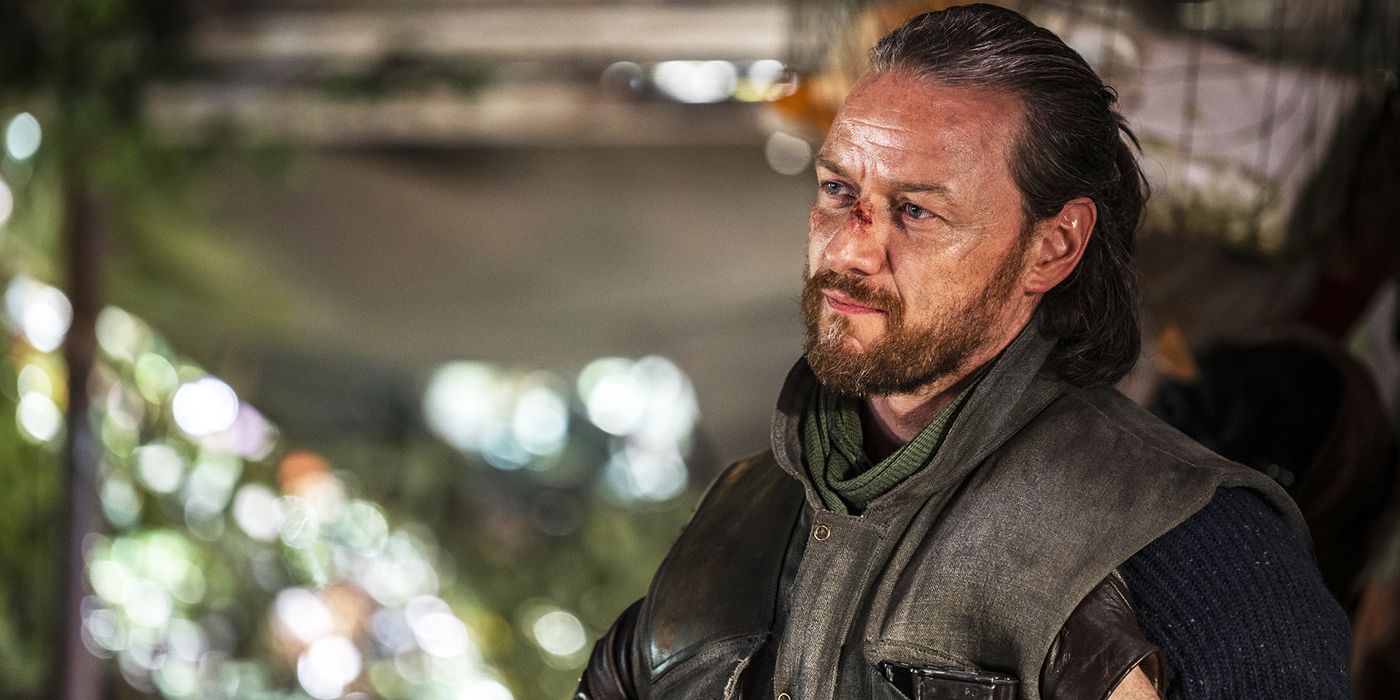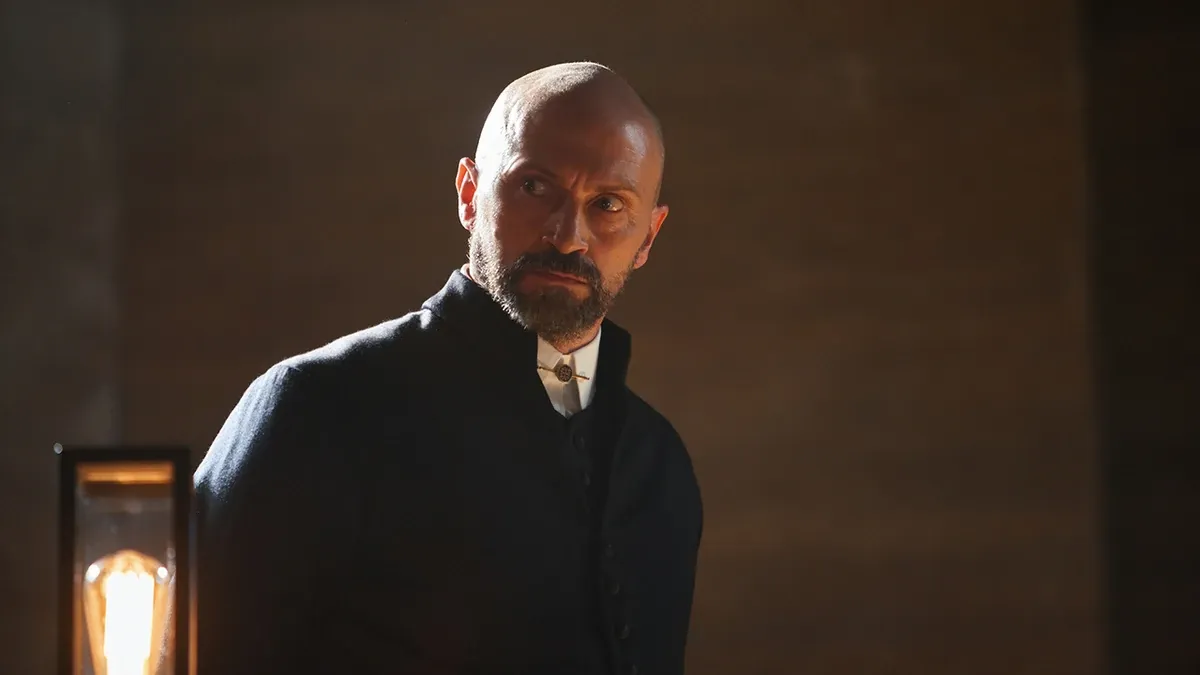Editor's Note: The following contains spoilers for the His Dark Materials Book Series and Seasons 1-2.His Dark Materials, the fantasy book series by acclaimed author Philip Pullman, is one that has been met with controversy ever since its original release from 1995 to 2000 that has spread throughout film and television adaptations. Pullman himself has not been shy about his reputation as 'The Most Dangerous Author In Britain', as British journalist Philip Hutchins once described him, and has spoken out himself on the scorn he has received from many religious conservative communities regarding his work.
There are many reasons why books can be banned by said communities, and disallowed in certain schools, sexuality, profanity, and topics that can be deemed a bad influence on children. But Pullman's His Dark Materials, effectively an epic fantasy retelling of John Milton's Paradise Lost, has received scorn for being something of the antithesis of C.S Lewis' The Chronicles of Narnia, a descriptor Pullman is satisfied with. With a sniper's precision and force, His Dark Materials aimed its scope at the almighty.
Of course, it's far more specific than religion, or faith in general, and while books belong to their readers and interpretation is subjective, it's made pretty clear that the series earned its controversy by railing against Christianity as an institution, and even more specifically the Catholic Church. This is a given with the loose source material we're working with, Paradise Lost originates the idea of "sympathy for the devil", but the threat that hangs over the heads of our heroes, when it's not a tyrannical theocracy, is an army of angels who seek to suppress free will.
When it came time, in 2007 when everyone was rushing to release their own Lord of the Rings, to adapt this story to film, The Golden Compass was somewhat cagey with the religious criticism. While some things remained, heretical witches as valiant heroes and the dogmatic authoritarian regime, the specificity was gone, as was the brutality to make it more child-friendly. It failed to make the impact that the books did, though still getting boycotted by religious conservatives.
The HBO series, which is now airing its third and final season, has been received much more positively, especially by fans of the books. The reason for this is clear and simple: It doesn't hold back.
Season 1 Exposes to Gobblers, Severing, and the Mystery of Dust
The religious criticism starts early into season one, as we see the impact the Magisterium, effectively a highly militarized megachurch that rules the world of Lyra Belacqua (Dafne Keen) with an iron fist, and the conception of the General Oblation Board. The latter entity and the woman in charge Marisa Coulter (Ruth Wilson) are the villains of season one, and the most frightening part of not only the book from which is adapted but the entire series.
The General Oblation Board, colloquially referred to as Gobblers, is an organization that abducts marginalized children, takes them to Bolvangar, an isolated lab in the frozen north, and forces them to take part in incredibly unethical experiments that permanently damage, if not kill them. If the idea of a religious institution secretly doing unspeakable things to the young and vulnerable already has alarms ringing in your head, it should.
However, the nature of the experiments is where the angle of spirituality, and most importantly the entity known as Dust, is brought into play. By this point in the story, it's a complete mystery to the audience what Dust is, all we know is that the Magisterium really doesn't like it. They perceive it as original sin, as a corrupting force that infiltrates the soul once someone's daemon, the soul manifest into an animal that shifts forms in childhood, settles into its true form during puberty.
The experiments the General Oblation Board are running involve severing the connection between children and their daemons in hopes of maintaining their innocence, but instead, the children are numbed, sedated ghosts of themselves, some not surviving the process. Bolvangar is destroyed by Lyra and an army of witches, a polar bear, and the families of the stolen children, but while they won the battle, there's always a bigger fish.
His Dark Materials Season 2 Reveals Corruption in the Magisterium
The Magisterium is further explored in the second season of the show, as Lyra crosses over to new worlds including our own to find the true meaning behind Dust, back in her world we see that the clergy is both cracking down and breaking apart. After the defeat at Bolvangar, and known heretic Lord Asriel (James McAvoy) opening a portal to a new world, the Consistorial Court of Discipline, those who are supposed to crack down on heresy, are scrambling on what to do.
This is where we see the idea of a religious institution as a hyper-militarized oppressive force, and the show, through the costumes by Caroline McCall, the set design, and the aesthetic. The series does not shy away from the religion they are pretty directly referencing: The immensely powerful Catholic Church. So far, we'd seen them tearing apart universities like Jordan College, which they already heavily censored, and antagonizing witches who up until this point have been minding their own business, but now we see what a war machine they truly are. Platoons of armed soldiers, giant blimps soaring through the air, and no hesitance to use excessive and deadly force during interrogations, all to silence opposing voices.
We also meet other members of the organization, such as the sniveling Father MacPhail (Will Keen), and Cardinal Sturrock (Ian Peck), who MacPhail is more than happy to kill in order to take his place, corruption implicitly being quite commonplace. While Mrs. Coulter, the one who convinced MacPhail to do this as part of her own plans, certainly benefits from this oppressive system, her ambitions are constantly stunted on the basis of her gender. The Magisterium is hellbent on maintaining the traditional way of things, the way they perceive The Authority, or God, to have ordained it.
In Season 3, We Look At The Heavens Itself
In this final season, it's clearer than ever that the rules are changing, and Lyra is the catalyst of that change, and it's clear that the Magisterium can't have that. She is prophesied to be the Eve of the new world, with her companion Will Parry (Amir Wilson) theoretically being the Adam, neither of them knowing that's the case. That doesn't stop MacPhail from sending a new character, Father Gomez (Jamie Ward), on a mission to capture Lyra and the fugitive Mrs. Coulter, dead or alive.
In all this chaos, one may be wondering where Lord Asriel went off to. Well, not much, just assembling an army of the aforementioned witches and the best warriors of multiple worlds who are under the thumb of a religious authority, which surprisingly includes wayward angels, to kill God itself. This has always been a much larger conflict than one between mortals, as Angels have been guiding both sides of the conflict, both protecting our protagonists and going to war with them. The heavens have been fractured, and have been waiting for a fuse to be lit. How do things shake out? Well, you'll just have to stay tuned.
His Dark Materials Teaches Us The Dangers Of Blind Faith
His Dark Materials has so much more nuance than one may be led to believe, it goes far beyond a simple anti-theistic statement of "religion sucks, and faith is stupid" - that's what makes it great art. Dust is the soul, it's dark matter, it's free thought and original sin, but more importantly from what we've seen so far it's what makes people feel alive, it's what makes the world feel alive. There is certainly a positive spiritual element within the story, but the show made a fantastic call maintaining the heavy criticisms against the institution of religion.
His Dark Materials facilitated critical thinking in young minds, introduced them to the idea of how faith can be twisted to serve the powerful, and how said power is commonly abused. Maybe that's what made it dangerous to some when the books and the film were released and marketed to young people. The fact that this show is produced in part by HBO allows for them to take more risks, and target the show at a somewhat more mature audience, and with that, they treat their audience like thinking people, as Pullman did, which is why the series has worked so well. Let's hope, unlike other epic fantasies from HBO, it sticks the landing.

